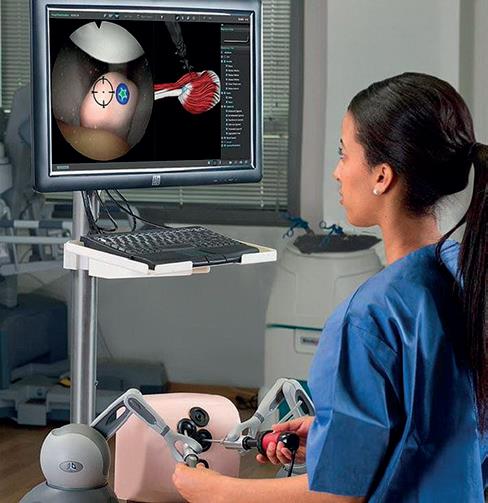The virtual-reality surgical simulator signals the beginning of an era of computer simulation for surgery.
By the time I complete my surgical training, I will have performed 60% fewer operations than my equivalent in the 1980s. This is a sobering thought for both patient and surgeon in-training. Add to this the steep learning curves required in modern techniques such as keyhole and robotic surgery, and you’d be forgiven for changing your mind and holding on to that troublesome gallbladder.
The cause of this change is the European Working Time Directive, which was introduced in the 1990s to limit the working week to 48 hours. Whilst this seems sensible enough for most, it leaves a skill-based career such as surgery in a difficult position.
One proposed solution is virtual reality (VR) surgical simulators. These typically consist of a computer and monitor connected to a mannequin with ready-made ‘keyholes’ into which motion-sensing instruments are placed in order to carry out a procedure. The result is an experience not overly far from the real thing, and will enable surgeons to practise procedures in a risk-free environment.
Ideas are one thing, but evidence supporting the utility of such simulators is a must if cash-strapped hospitals are to invest in them. We have, therefore, been investigating how effective simulators are in exhibiting three kinds of validity: construct (the extent to which the simulator measures what it claims to measure), face (whether a system ‘feels real’) and concurrent (improvements on the simulator should translate into the real task). Thus far, we have demonstrated construct and face validity in the latest orthopaedic surgical simulators (which are advanced enough to tell you exactly how steady your hand is). It remains to be seen if simulation improves your real world performance, but I for one would get a better night’s sleep before my arthroscopy if I knew the surgeon had made their early mistakes in virtual reality.
Dr Sid Lawrence

If you have something that would make a good news or feature item, please email news@sid.cam.ac.uk
